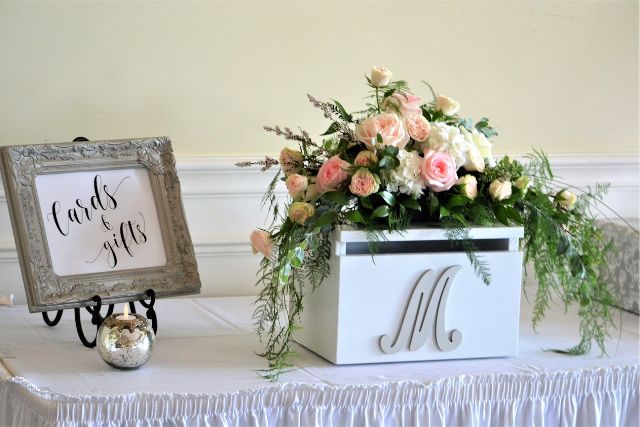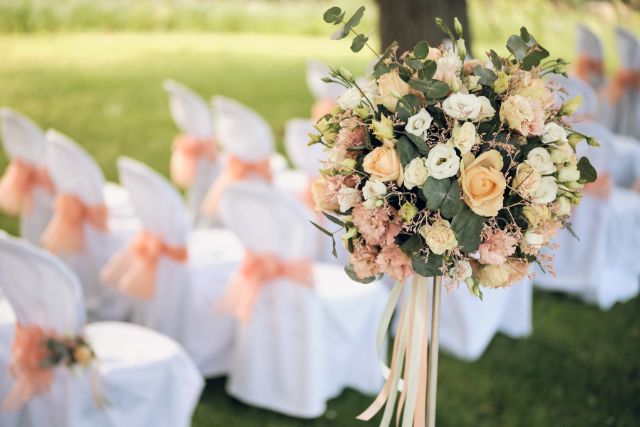The Secret Behind Perfect Weddings: What Wedding Planners Really Do

Abby is a lover of all things weddings. Her goal…

Are you curious about what goes on behind the scenes at your dream wedding? A wedding planner is a magician who can make your special day run smoothly while handling all the details—big and small. From coordinating vendors to managing timelines, they are experts in creating memorable weddings that reflect couples’ personalities. With their extensive experience, they can ensure that nothing is overlooked and everything runs according to plan. If you’re considering hiring a wedding planner for your big day, take a look at our comprehensive guide to learn more about what duties they typically perform.
1. Sourcing vendors, venue selection, budgeting

One of the key responsibilities of wedding planners is sourcing vendors. This involves researching and finding suitable vendors, such as florists, caterers, photographers and entertainers, who can provide quality services within a client’s budget. Once potential vendors are identified, wedding planners negotiate with them to secure contracts that meet their clients’ needs.
Another important duty of wedding planners is venue selection. They work with their clients to identify venues that align with their vision for the wedding day while also considering factors such as guest capacity and accessibility. Wedding planners visit potential venues with clients in tow so they can assess suitability first-hand and make an informed decision.
So what exactly are wedding planners’ responsibilities when it comes to budgeting? They must establish a realistic budget with their clients based on their preferences and expectations for the big day. This involves identifying priorities and allocating funds accordingly. Wedding planners also need to keep track of all expenses incurred during the planning process, ensuring that everything stays within the set budget range.
2. Managing timelines and vendor communication

To manage timelines effectively, a wedding planner must create a detailed timeline of what needs to happen during the day – from hair and makeup appointments to the last dance at the reception. This timeline ensures everyone involved knows where they should be and when they need to be there, minimizing delays or confusion. Maintaining open lines of communication with vendors is also essential- from confirming delivery times to updating them about any changes in venue or schedule.
3. Handling unexpected situations calmly and efficiently

One of the primary duties of a wedding planner is to anticipate potential problems and have contingency plans in place. This means identifying potential issues before they occur and preparing for them accordingly. It would be best to work closely with each vendor involved in the event to ensure everyone is on the same page and has clear expectations for their role. Additionally, it’s important to communicate effectively with your clients so they understand what to expect throughout the planning process.
Thinking creatively entails adapting quickly and finding alternative solutions that will not compromise the overall vision and theme of the wedding. For instance, if there is a sudden power outage during an outdoor reception at night, having backup generators on hand or utilizing candlelight can add ambience while keeping guests comfortable. Similarly, if one of the bridesmaids falls ill and cannot make it to the ceremony in time for photos, thinking creatively could involve changing up poses or arranging flowers in her place for group shots.
4. Collecting personal belongings and final payments

One of the essential duties of a wedding planner is to oversee the collection of personal belongings and ensure that all final payments are made. It is crucial to have a detailed plan to ensure everything runs smoothly and efficiently. This includes coordinating with vendors, ensuring they receive their final payment on time, and collecting all rented equipment.
In addition to ensuring that vendors are properly compensated, collecting any personal belongings left behind by clients or guests is also important. These may include gifts, decorations, or sentimental items that hold great value for the couple. A wedding planner’s responsibility is to ensure that these items are collected safely and returned to their rightful owners.
5. Maintaining ongoing contact throughout the planning process

A wedding planner’s key duty is establishing effective communication lines. This includes the bride and groom, vendors, venue managers, and other service providers. By facilitating clear communication between everyone involved, they can ensure that everything runs smoothly and according to plan. Whether through regular emails, phone calls, or face-to-face meetings, maintaining open lines of communication is critical for success as a wedding planner.
Final Thoughts
A wedding planner is a crucial professional in the wedding industry. Their vast duties encompass everything from budgeting to decoration arrangements and vendor coordination. Their expertise in managing events ensures that every wedding detail is well-planned and executed seamlessly.
A wedding planner is essential in ensuring you have a stress-free and enjoyable experience on your big day. Therefore, hiring a wedding planner can be one of the best investments for your special day if you want a hassle-free and memorable wedding. So, take the first step towards a perfect wedding by contacting a reliable wedding planning service provider today!
Pin it, save it, love it! Save this image to Pinterest to bookmark this page!

Abby is a lover of all things weddings. Her goal is to ensure that couples have the perfect day and leave no stone unturned while making their special event memorable.






